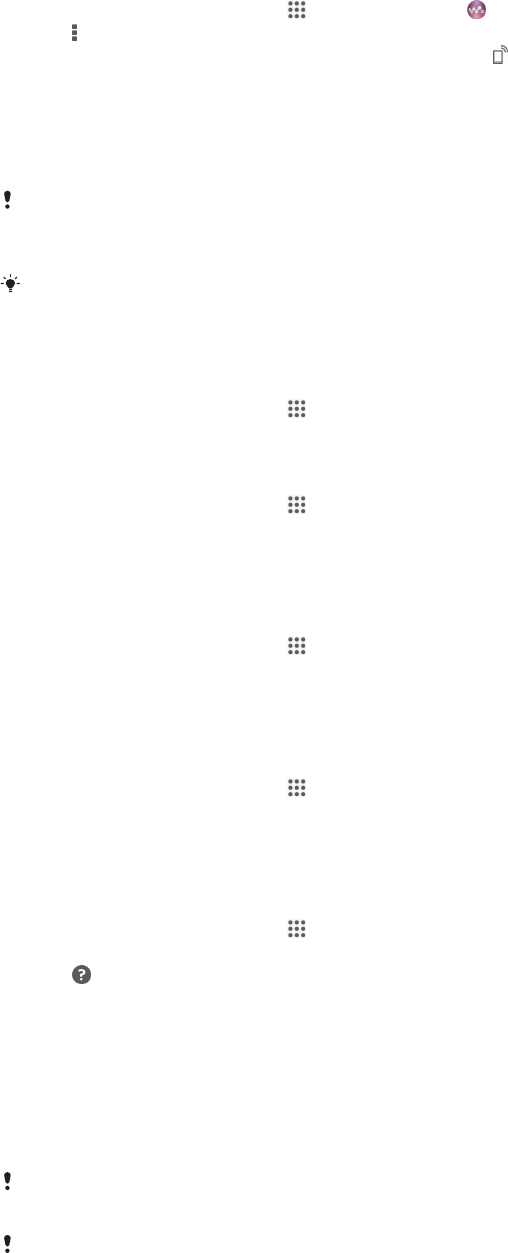
To set up file sharing with other DLNA Certified™ devices
1 Connect your device to a Wi-Fi® network.
2 From your Home screen, tap , then find and tap .
3 Tap , then tap Media server.
4 To turn on the Share media function, drag the slider. appears in the status bar.
Your device can now work as a media server.
5 Connect your computer or other devices to the same Wi-Fi® network as your
device.
6 A notification appears in the status bar of your device. Open the notification and
set the relevant access permissions for other devices.
The instructions described above may differ depending on the client devices used. Refer to
your client device User guide for more information. If the device cannot connect, check that
your Wi-Fi® network is working.
You can also access the Media server menu under Settings > Xperia™ Connectivity > Media
server settings. If you close the Media server view, the file sharing function stays running in
the background.
To stop sharing files with other DLNA Certified™ devices
1 From your Home screen, tap
.
2 Find and tap Settings > Xperia™ Connectivity > Media server settings.
To set access permissions for a pending device
1 From your Home screen, tap
.
2 Find and tap Settings > Xperia™ Connectivity > Media server settings.
3 Select a device from the Pending devices list.
4 Select an access permission level.
To change the name of a registered device
1 From your Home screen, tap
.
2 Find and tap Settings > Xperia™ Connectivity > Media server settings.
3 Select a device from the Registered devices list, then select Change name.
4 Enter a new name for the device.
To change the access level of a registered device
1 From your Home screen, tap
.
2 Find and tap Settings > Xperia™ Connectivity > Media server settings.
3 Select a device from the Registered devices list.
4 Tap Change access level and select an option.
To get help about sharing content with other DLNA Certified™ devices
1 From your Home screen, tap
.
2 Find and tap Settings > Xperia™ Connectivity > Media server settings.
3 Tap .
Playing files on a Digital Media Renderer device
Using DLNA™ technology, you can push media content saved on your device to another
device connected to the same Wi-Fi® network. The other device must be able to
function as a Digital Media Renderer (DMR) device, which means that it can render, or
play, content received from your device. A DMR device can be, for example, a TV with
DLNA function, or a PC running Windows® 7 or higher.
The settings for enabling the Digital Media Renderer may vary depending on the device used.
Refer to the user guide for the respective device for more detailed information.
Content with Digital Rights Management (DRM) cannot be played on a Digital Media Renderer
device using DLNA™ technology.
91
This is an Internet version of this publication. © Print only for private use.
